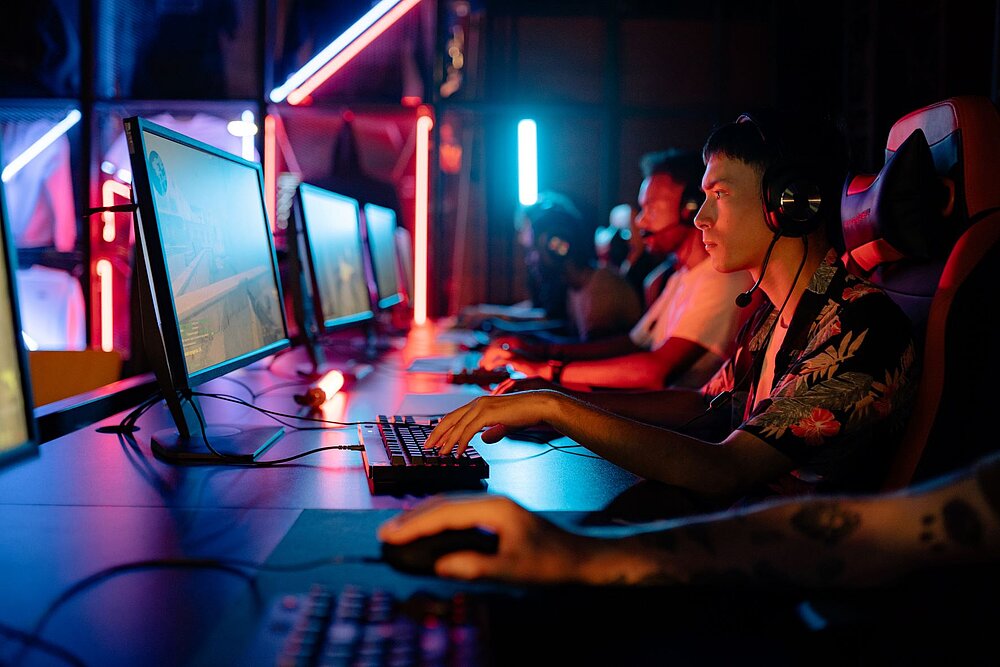Find out today what the legal world will be talking about tomorrow.

A historic moment for esports in Europe: European Parliament adopts resolution on esports and gaming
I. The Start of the Process
The European Parliament's process on esports started on November 8, 2021 with the "Report on EU sports policy: assessment and possible ways forward". Under the heading "Supporting the transition to a sustainable and innovative future", point 92 states that “[The European Parliament] calls for the EU institutions to launch a debate on the future and on the opportunities of e-sports and to collect data in order to assess this sector and present a study on its social and economic impact”.
II. Research as the Foundation for the Process
The responsible CULT Committee commissioned Dr. Tobias M. Scholz and me to prepare said study, which was to lay the foundation for the process in the following twelve months. In addition, the committee also commissioned a "Policy Recommendation" from us. The purpose of these publications and the consultation up to the vote in Parliament was to accompany the political process at European level and, in particular, to prepare the "Draft Report on E-sport and videogames" (Rapporteur Laurence Farreng). Both the "Background Analysis on Esports" and the "Policy Recommendation on Esports" were submitted on March 9, 2022 and - after a Q&A session between the MPs and the authors on March 14, 2022 - published in May 2022.
The study describes the status quo of esports as well as the opportunities and challenges arising from esports. The Policy Recommendation puts a focus on the definition, research, regulation and utilization of esports (for the European society). The Draft Report based on these publications was published only a few days earlier.
The report agreed with the publications on many points, including the:
- core elements of the esports definition
- implications with regard to culture, media, technology and (traditional) sports
- utilization of esports as a tool for education
- separation of esports and (traditional) sports while focusing on possible collaboration or complementation
- categorization of esports as a digital and innovation matter
- creation of a European long-term strategy for gaming and esports
- localization of legislation on a European level and the creation of a suitable legal framework in various areas
On May 17, 2022, the "Draft Report on E-sport and videogames" was finally discussed for over 30 minutes in the CULT Committee. The rapporteur Laurence Farreng outlined her three goals for the draft report:
- to promote the gaming and esports industries and to utilize their cultural and economic potentials
- to define what contribution the EU can make
- to highlight and to promote esports (value esports, break down barriers and strengthen European identity through esports)
III. Amendment Phase
Between May and mid-October 2022, the 229 amendments were discussed and compromises were worked out - an imposing, but not alarming number of amendments. However, by the time of the CULT Committee vote on October 3, 2022, a compromise had been reached on all issues.
IV. Vote in the CULT Committee
On October 3, 2022, the vote on the final "Report on esports and video games" took place in the CULT Committee of the European Parliament. The report was unanimously adopted at this meeting in its final form for the plenary debate and vote of the Parliament in November.
V. Debate in the European Parliament
On November 9, 2022, starting at 10 p.m. CEST, the 30-minute debate took place in the European Parliament. All speakers (including Rapporteur Laurence Farreng, EU Commissioner for Internal Market Thierry Breton) attested the report a universally positive rating. Particular praise was given to the holistic approach, which is not limited to financial support, but looks at all cultural and social uses and calls for regulatory action. In conclusion, EU Commissioner Breton assured that the Commission was very pleased with the report and planned to act accordingly (possibly in connection with the ongoing debate on Metaverse).
VI. Vote in the European Parliament
Finally, on November 10, 2022 at 11 a.m. CEST, the resolution was passed by the European Parliament. This marks a historic milestone at the end of the 12-month process, but at the same time only the beginning of the real work. In the following months, it is now up to the European legislator to follow the words of the Parliament with actions in order to support a healthy and successful development of esports in Europe.
VII. Concluding: Some Highlights from the Resolution
- The European Parliament calls for the development of a coherent, long-term European video game strategy, which should benefit all actors involved fairly and adequately, while taking into account esports and the current dependence on imports and building on existing national strategies in order to support EU actors and EU start-ups in these sectors;
- The European Parliament believes that, owing to the borderless nature of the discipline, the European Union is the appropriate level at which to address the challenges of esports;
- The European Parliament asks the Commission to study the possibility of creating coherent and comprehensive guidelines regarding the status of professional esports players;
- The European Parliament calls on the Member States and the Commission to consider the creation of a visa for esports personnel based on the Schengen cultural and sports visas, applicable to all personnel involved in running and participating in esports competitions, and to consider measures to facilitate visa procedures to enable video game workers to come to the EU;
- whereas the innovative value of the sector should also be acknowledged, as much as its cultural added value;
- whereas these ecosystems still lack the harmonised data, definitions and legal frameworks required to enable them to embrace their full potential;
- whereas video games and esports use advanced technologies such as AI and virtual reality, and have initiated the creation of alternative virtual spaces such as metaverses;
- whereas the definition [of esports] encompasses a human element (the players), a digital element (the games themselves) and a competitive element;
- whereas esports differ from sports in that they are digital by definition; whereas esports is a phenomenon essentially driven by private entities, with the IP rights belonging to the game publisher and competition rights either to the game publisher or arranged on a contract-by-contract basis;
- The European Parliament considers that esports and sport are different sectors, not least because the video games used for competitive gaming or esports are played in a digital environment and belong to private entities that enjoy full legal control and all exclusive and unrestricted rights over the video games themselves; believes, however, that both sectors can complement and learn from each other and promote similar positive values and skills, such as fair play, non-discrimination, teamwork, leadership, solidarity, integrity, antiracism, social inclusion and gender equality;
- The European Parliament acknowledges the need to safeguard esports from problems with match-fixing, illegal gambling and performance enhancement, including doping; underlines the necessity to prevent doping and match-fixing in professional gaming and to educate players about these issues, as well as to protect the integrity of competitions;
- The European Parliament calls on the Commission to explore synergies between the video game sector and its innovation strategy, particularly in the context of research on the metaverse and bearing in mind the protection of data privacy and cybersecurity challenges, without losing sight of the esports phenomenon;
- The European Parliament calls on the Commission to develop a charter to promote European values in esports competitions, in partnership with publishers, team organisations, clubs and tournament organisers;
- The European Parliament underlines that video games and esports have a dual role to play in the green transition, both as an industry that must work to become more environmentally friendly, and as a medium for raising awareness of climate and environmental issues among video game players;
- The European Parliament highlights the important role that cities and regions can play in providing access to infrastructure capable of hosting esports events or facilitating access to video games for all
Authors



